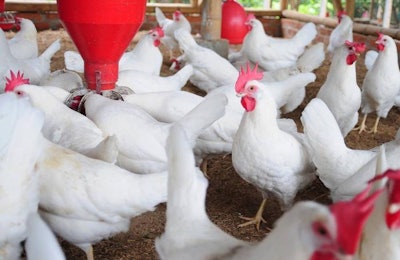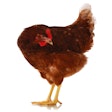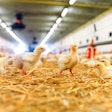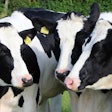
As part of a review of food safety issues in Pakistan, the Senate has expressed particular concerns about standards in the country's poultry farms.
During a briefing last week, the Senate Standing Committee on Science and Technology heard about a number of issues contributing to poor standards at the nation’s poultry farms, reports Dawn.
Specifically, the director general of Pakistan Standards and Quality Control Authority told the Committee that injections and antibiotics are used at poultry farms to promote bird growth, and that poultry and poultry feed are being produced at unlicensed facilities that are not officially inspected.
He alleged farm licenses are a particular issue in Punjab, where he said, “Poultry farms are a political issue,” according to the newspaper report.
The Senate Committee has ordered the Ministry of Science and Technology to provide a report on poultry farm standards.
In July, Dawn reported that a poultry slaughterhouse had been closed in the Punjab city of Rawalpindi because of the unhygienic conditions there, and the facility was unlicensed.
At around the same time, Pakistan Poultry Association chairman, Dr. Abdul Karim, called on various government departments to provide substantial subsidies on air and sea freight costs to help support the country’s exports of poultry products.
According to The Nation, Karim said the support would allow the country’s poultry industry to take a 15 percent share of the US$300-billion global halal food market, as well as helping to reduce the national trade deficit. At the time, Pakistan’s share of the halal market was described as “negligible.”
Adding to the competitive challenges of poultry producers in the export arena, according to Karim, are import duties and taxes of 18 percent on vaccines and medicines, 22 percent of on poultry feed ingredients, and 17 percent on electricity.
Just a year ago, a new initiative was set up to promote poultry farming in Punjab, which is the center of the country’s poultry industry.


















